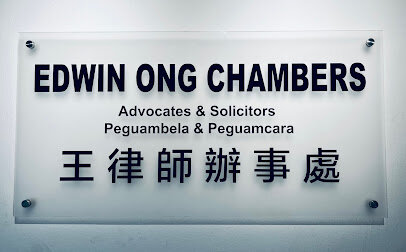Best General Litigation Lawyers in Klang
Share your needs with us, get contacted by law firms.
Free. Takes 2 min.
List of the best lawyers in Klang, Malaysia
About Litigation Law in Klang, Malaysia
Litigation refers to the process of resolving disputes through the court system. In Klang, Malaysia, the process follows the legal framework established by Malaysian law, focusing on civil matters, commercial disputes, and other cases that require judicial intervention. The legal system in Malaysia is based on a combination of English common law and local customs. Klang, being a vibrant and economically active region, sees various types of litigation, from family law disputes to complex commercial litigations involving businesses. Understanding the basics of litigation can help parties in dispute find a way forward in resolving their issues through legal channels.
Why You May Need a Lawyer
There are numerous situations where seeking legal assistance in litigation becomes necessary. Common scenarios include:
- Business Disputes: Conflicts over contracts, partnerships, or shareholder agreements.
- Personal Injury Claims: Seeking compensation for accidents or negligence.
- Employment Issues: Disputes over wrongful termination, discrimination, or workplace rights.
- Family Law: Divorce, child custody, and property settlements.
- Property Disputes: Issues related to ownership, tenancy, or real estate transactions.
- Debt Recovery: Legal actions to recover unpaid debts.
In such cases, a lawyer can provide legal advice, represent you in court, and work towards a favorable outcome.
Local Laws Overview
Key aspects of local laws related to litigation in Klang, Malaysia include:
- Civil Law Procedures: Governed by rules such as the Rules of Court 2012 which outline procedures for civil litigation.
- Contract Law: Malaysian law requires contracts to be clear and fair, often guided by the Contracts Act 1950.
- Employment Law: Regulated by various statutes like the Employment Act 1955, ensuring workers' rights.
- Family Law: Governed by the Law Reform (Marriage and Divorce) Act 1976 for non-Muslims, with separate Shariah laws for Muslims.
- Tort Law: Including negligence which is governed by common law principles.
- Intellectual Property Law: Protects creations of the mind under acts such as the Patents Act 1983, and Trademarks Act 1976.
Laws can be complex, and understanding the legal landscape in Klang is crucial for effective litigation proceedings.
Frequently Asked Questions
What is the first step in initiating litigation in Klang?
Typically, the first step is to file a complaint or a summons in the appropriate court jurisdiction, detailing the nature of the dispute and relief sought.
How long does a typical litigation process take?
The duration varies depending on the complexity of the case, but it can range from several months to several years.
What are the costs involved in litigation in Klang?
Costs may include court fees, legal representation, and other related expenses. It's crucial to discuss the fee structure with your lawyer upfront.
Can I represent myself in court?
Yes, self-representation is allowed, although it is generally recommended to have legal representation due to the complexities of litigation.
What alternatives exist to going to court?
Alternative Dispute Resolution (ADR) methods such as mediation and arbitration can be pursued to settle disputes outside of court.
What happens if I lose a case?
If a case is lost, you may have the option to appeal the decision to a higher court, subject to certain conditions and timelines.
Is there a statute of limitations for filing a lawsuit in Klang?
Yes, most civil claims must be filed within six years from the date the cause of action arose, but certain cases may have different limitations.
How can I enforce a court judgment?
Enforcement can be done through various methods such as garnishment, attachment, or appointment of a receiver, depending on the nature of the judgment.
Do I need to appear in court if my case goes to trial?
Yes, parties are generally required to attend court hearings, unless advised otherwise by their legal counsel.
Can cross-border disputes be litigated in Klang?
Yes, but such cases may require additional legal considerations regarding jurisdiction and applicable law.
Additional Resources
Here are some resources and organizations that can provide assistance in litigation matters:
- The Malaysian Bar Council: Offers resources and guidance on legal matters.
- Legal Aid Department Klang: Provides legal advice and representation for those who qualify.
- Consumer Claims Tribunal: An alternative platform for resolving consumer-related disputes.
- Ministry of Domestic Trade and Consumer Affairs: Oversees various consumer rights issues.
Next Steps
If you need legal assistance in litigation, consider the following steps:
- Consult a Lawyer: Seek a consultation to understand your legal position and options.
- Gather Documentation: Prepare and organize any documents related to your case.
- Understand Your Rights: Familiarize yourself with the legal rights applicable to your circumstance.
- Consider ADR: Explore alternative dispute resolution methods as a potential first step.
- Proceed with Legal Action: If necessary, file a complaint or summons to initiate litigation.
Engaging a knowledgeable lawyer can greatly influence the outcome of your legal proceedings.
Lawzana helps you find the best lawyers and law firms in Klang through a curated and pre-screened list of qualified legal professionals. Our platform offers rankings and detailed profiles of attorneys and law firms, allowing you to compare based on practice areas, including General Litigation, experience, and client feedback.
Each profile includes a description of the firm's areas of practice, client reviews, team members and partners, year of establishment, spoken languages, office locations, contact information, social media presence, and any published articles or resources. Most firms on our platform speak English and are experienced in both local and international legal matters.
Get a quote from top-rated law firms in Klang, Malaysia — quickly, securely, and without unnecessary hassle.
Disclaimer:
The information provided on this page is for general informational purposes only and does not constitute legal advice. While we strive to ensure the accuracy and relevance of the content, legal information may change over time, and interpretations of the law can vary. You should always consult with a qualified legal professional for advice specific to your situation.
We disclaim all liability for actions taken or not taken based on the content of this page. If you believe any information is incorrect or outdated, please contact us, and we will review and update it where appropriate.














